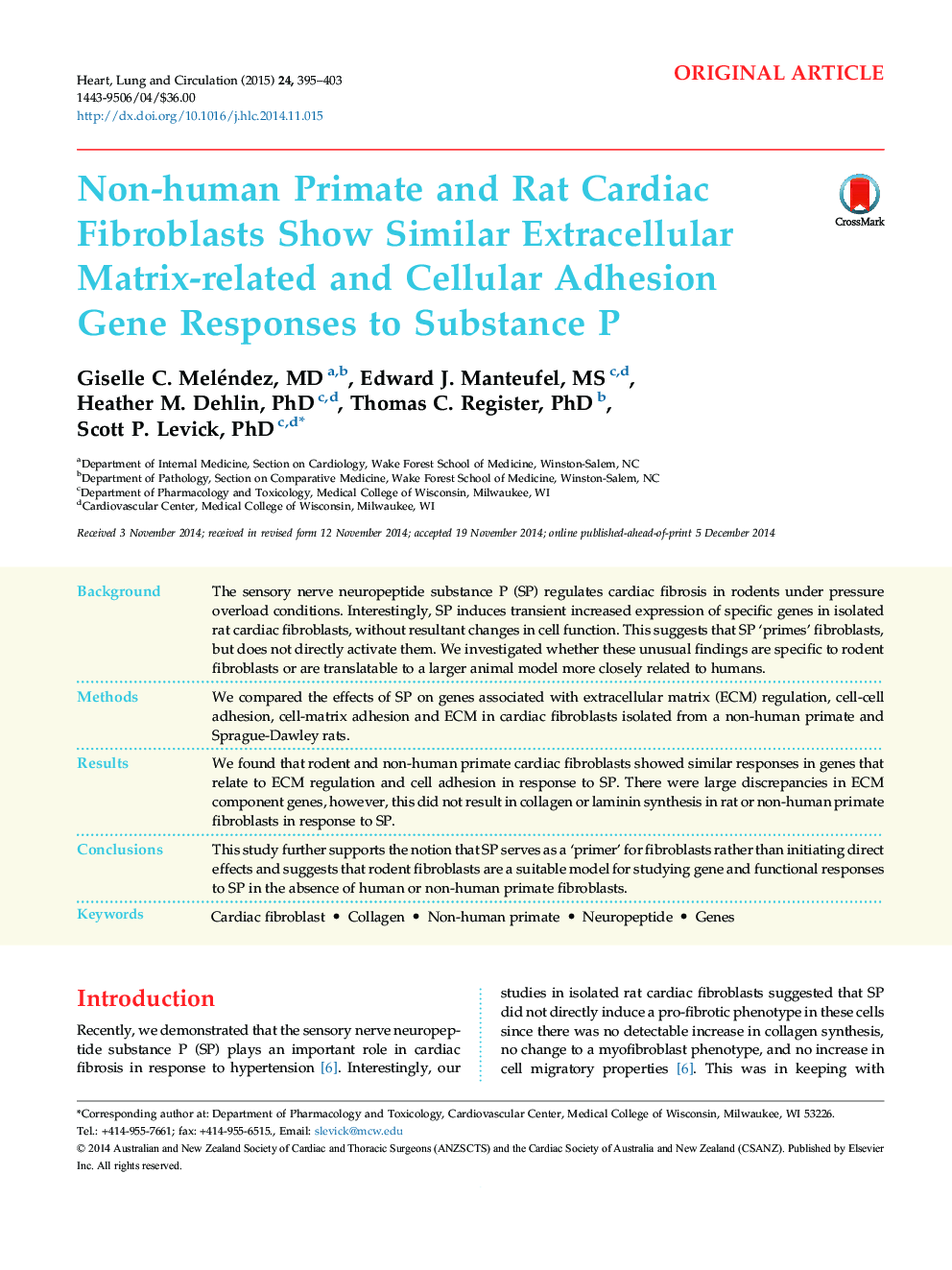| Article ID | Journal | Published Year | Pages | File Type |
|---|---|---|---|---|
| 2917593 | Heart, Lung and Circulation | 2015 | 9 Pages |
BackgroundThe sensory nerve neuropeptide substance P (SP) regulates cardiac fibrosis in rodents under pressure overload conditions. Interestingly, SP induces transient increased expression of specific genes in isolated rat cardiac fibroblasts, without resultant changes in cell function. This suggests that SP ‘primes’ fibroblasts, but does not directly activate them. We investigated whether these unusual findings are specific to rodent fibroblasts or are translatable to a larger animal model more closely related to humans.MethodsWe compared the effects of SP on genes associated with extracellular matrix (ECM) regulation, cell-cell adhesion, cell-matrix adhesion and ECM in cardiac fibroblasts isolated from a non-human primate and Sprague-Dawley rats.ResultsWe found that rodent and non-human primate cardiac fibroblasts showed similar responses in genes that relate to ECM regulation and cell adhesion in response to SP. There were large discrepancies in ECM component genes, however, this did not result in collagen or laminin synthesis in rat or non-human primate fibroblasts in response to SP.ConclusionsThis study further supports the notion that SP serves as a ‘primer’ for fibroblasts rather than initiating direct effects and suggests that rodent fibroblasts are a suitable model for studying gene and functional responses to SP in the absence of human or non-human primate fibroblasts.
